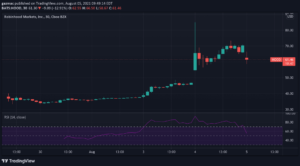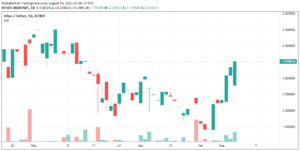 The latest issue of Music & Copyright is now available for subscribers to download. Here are some of the highlights.
The latest issue of Music & Copyright is now available for subscribers to download. Here are some of the highlights.
Stream-ripping service Yout fires back at the RIAA with amended complaint
Stream-ripping service Yout has responded to the August dismissal of a lawsuit, filed at a Connecticut district court last year against the US music trade association the RIAA, by submitting an amended complaint. Yout has again asked the court to determine that the service’s software platform does not violate section 1201 of the Digital Millennium Copyright Act (DMCA) and award compensatory and punitive damages with the amounts determined at a jury trial. After the first filing, the RIAA described Yout as a “haven for copyright infringement” and said that the service had failed to state a plausible claim for a declaratory judgment that its service does not violate section 1201. In its amended filing, Yout explained that its software platform does not bypass YouTube’s rolling cipher technical protection software, adding that the term “rolling cipher” was a misnomer and simply coined by the RIAA to argue that stream-ripping services were breaching a protection measure that does not exist.
CJEU advocate general advises that private copying remuneration should apply to cloud services
An advocate general (AG) at the European Court of Justice (CJEU) has published an opinion in a case concerning the application of private copying remuneration to cloud storage services. The legal claim, brought by the Austrian mechanical rights society Austro Mechana (AUME) against the cloud storage company Strato AG, was first heard at a Vienna commercial court, but then made its way to a Vienna regional court. That court requested that the CJEU clarify whether compensation for the exploitation of the right of reproduction was payable by Strato in respect of cloud-based storage capacity provided in Austria. The referral is still pending, but according to AG Gerard Hogan’s published opinion, cloud services should not be excluded from private copying schemes. However, he noted that the application of remuneration, if at all, should be determined by whether rights holders had already been compensated for reproduction by private copying levies applied to devices and media used to upload and download content to and from a cloud service.
Pressing need for the music industry to address the vinyl squeeze
The vinyl revival has proved to be more than a mere blip as consumers continue to demonstrate appetite for the vintage technology. The format has certainly moved beyond what was previously an audiophile base as major retailers muscle into the segment. However, rising demand is not being met by supply, and independent record companies are being squeezed out by the majors and their high-volume orders. Also, PVC and cardboard prices have risen sharply, making manufacture a more costly process. In addition, producers are coming in for criticism over the environmental impact of vinyl. All of this means it is now time to go back to simple formats and to look to new materials and production methods for a greener album.
Netherlands country report
In addition to the usual set of music industry statistics and news briefs, the latest issue of Music & Copyright includes a detailed Netherlands music industry report. After more than a decade of falling trade revenue from recorded-music sales, the Netherlands has experienced a sustained period of growth. In common with most developed markets in Europe, Dutch record company earnings were hit by the effects of online piracy as a result of the shift from physical formats to digital. However, for the last six years, trade revenue has been on the up and further growth is expected for this year and beyond. Digital accounted for close to 85% of the combined digital/physical trade revenue last year. Dutch authors’ societies BUMA and STEMRA registered the first fall in joint collections since 2011. Gains for STEMRA were unable to offset the declines in receipts from live music, retail, and the hospitality sectors for BUMA, as a result of the COVID-19 pandemic and the measures introduced by the government to limit the spread of the virus. COVID-19 also affected total receipts for producers’ and performers’ society SENA, which were down year-on-year. Unsurprisingly, the live industry experienced a drop in ticket sales with forecasts suggesting a return to pre-pandemic levels may be a couple of years away.
If you would like more information about the newsletter or set up a subscription, then send us an email
- &
- advocate
- All
- appetite
- Application
- AUGUST
- Austria
- border
- Capacity
- Cloud
- cloud services
- cloud storage
- coming
- commercial
- Common
- Companies
- company
- Compensation
- Connecticut
- Consumers
- content
- continue
- copyright
- Couple
- Court
- COVID-19
- COVID-19 pandemic
- Demand
- Devices
- digital
- Drop
- Dutch
- Earnings
- environmental
- Europe
- European
- European Court of Justice
- First
- format
- General
- Government
- Growth
- here
- hospitality
- HTTPS
- Impact
- industry
- information
- IT
- Justice
- latest
- lawsuit
- Legal
- major
- Making
- Markets
- materials
- measure
- Media
- Music
- music industry
- Netherlands
- news
- Newsletter
- offset
- online
- Opinion
- orders
- pandemic
- physical
- Piracy
- platform
- private
- Producers
- Production
- protection
- Referral
- report
- reproduction
- retail
- retailers
- revenue
- sales
- Sectors
- Services
- set
- shift
- Simple
- SIX
- Society
- Software
- software platform
- spread
- State
- statistics
- storage
- subscription
- supply
- Technical
- Technology
- the Netherlands
- time
- trade
- trial
- us
- vintage
- virus
- WordPress
- year
- years



